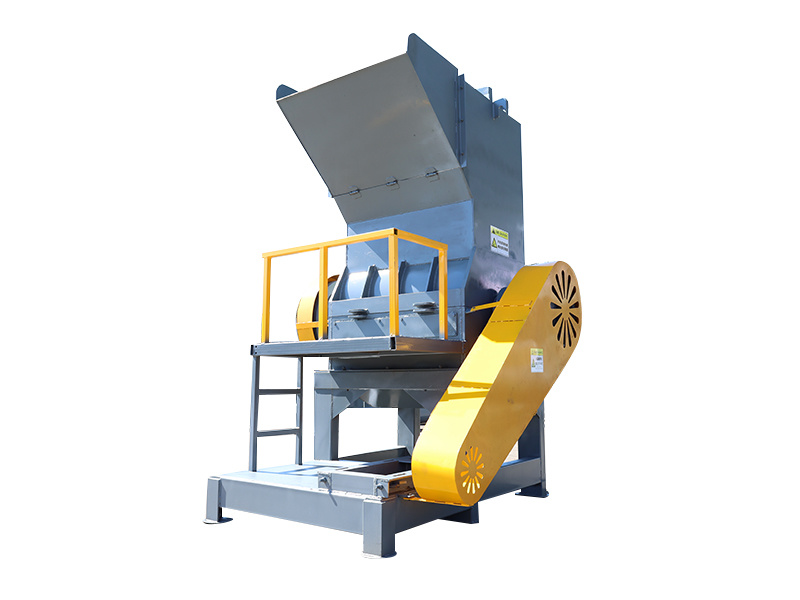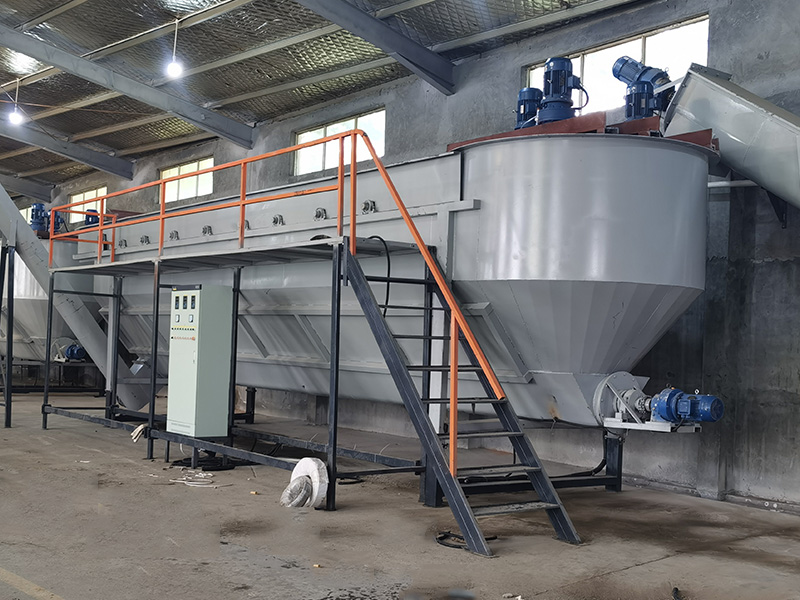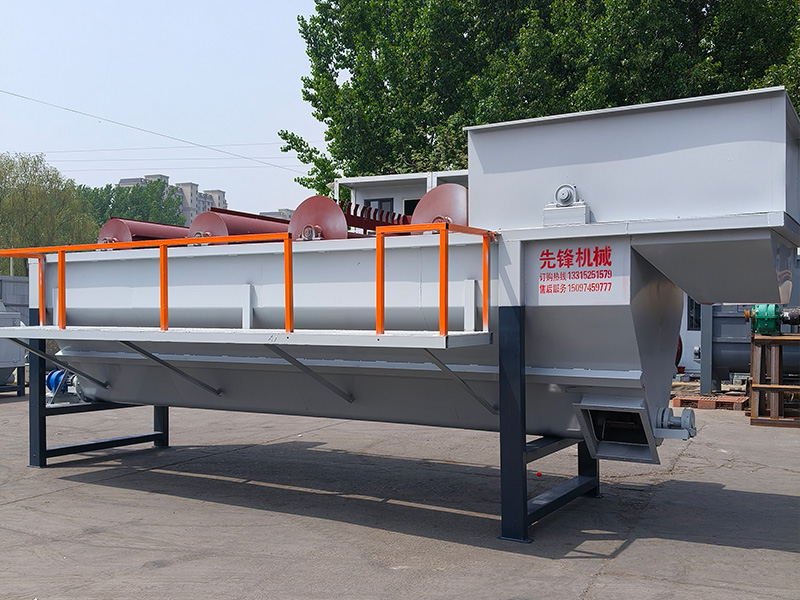Why a Delabeling Machine is Essential for Plastic Processing
Why a Delabeling Machine is Essential for Plastic Processing
Table of Contents
1. Introduction to Delabeling Machines
2. Understanding the Importance of Label Removal in Plastic Processing
3. Key Benefits of Using a Delabeling Machine
3.1 Enhanced Recycling Efficiency
3.2 Cost Reduction in Waste Management
3.3 Improved Product Quality
3.4 Environmental Sustainability
4. How Delabel
Jun 05,2025

Why a Delabeling Machine is Essential for Plastic Processing
Table of Contents
1. Introduction to Delabeling Machines
2. Understanding the Importance of Label Removal in Plastic Processing
3. Key Benefits of Using a Delabeling Machine
3.1 Enhanced Recycling Efficiency
3.2 Cost Reduction in Waste Management
3.3 Improved Product Quality
3.4 Environmental Sustainability
4. How Delabeling Machines Work
4.1 Different Types of Delabeling Machines
4.2 Choosing the Right Delabeling Machine for Your Needs
5. Applications of Delabeling Machines in Various Industries
6. Best Practices for Operating Delabeling Machines
6.1 Maintenance and Care Tips
6.2 Training and Safety Considerations
7. Conclusion
8. Frequently Asked Questions (FAQs)
1. Introduction to Delabeling Machines
Delabeling machines play a vital role in the plastic processing industry. As the demand for recycled plastics increases, the need for effective label removal becomes paramount. These machines are designed to streamline the delabeling process, ensuring that plastic containers are free from labels, adhesives, and contaminants before they proceed to recycling or further processing stages.
2. Understanding the Importance of Label Removal in Plastic Processing
Labels and adhesives can hinder the recycling process, leading to contamination and inferior quality of recycled materials. When plastic containers are not properly delabeled, the resulting recycled products may fail to meet industry standards, thus limiting their usability. Effective label removal is essential for:
- **Maintaining Material Integrity**: Labels can contain materials that alter the properties of recycled plastics.
- **Ensuring Compliance**: Regulatory standards often require that recycled materials be free from contaminants.
- **Enhancing Marketability**: Clean, label-free plastics are more appealing to manufacturers and consumers, driving demand for recycled products.
3. Key Benefits of Using a Delabeling Machine
Investing in a delabeling machine comes with numerous advantages that can significantly impact the efficiency and effectiveness of plastic processing operations.
3.1 Enhanced Recycling Efficiency
Delabeling machines ensure a thorough removal of labels, leading to higher recycling efficiency. By eliminating all foreign materials, these machines contribute to producing high-quality recycled plastics that meet stringent quality standards.
3.2 Cost Reduction in Waste Management
Proper label removal minimizes the risk of contaminated batches, reducing waste management costs. The delabeling process allows companies to recycle more materials, lowering their overall disposal and processing expenses.
3.3 Improved Product Quality
With a delabeling machine, the likelihood of producing contaminated recycled products decreases significantly. This results in improved product quality, which can enhance the reputation of a company in the market and increase customer satisfaction.
3.4 Environmental Sustainability
Delabeling machines contribute to sustainability efforts by promoting the recycling of plastic materials. By ensuring that labels do not contaminate the recycling stream, these machines help reduce landfill waste and support a circular economy.
4. How Delabeling Machines Work
Delabeling machines utilize various technologies to effectively remove labels from plastic containers. Understanding how these machines function can help operators maximize their potential.
4.1 Different Types of Delabeling Machines
There are several types of delabeling machines available, each designed for specific applications and types of containers:
- **Mechanical Delabelers**: Use physical methods to scrape or peel labels off surfaces.
- **Chemical Delabelers**: Employ solvents to dissolve adhesives and facilitate label removal.
- **Water-based Delabelers**: Utilize high-pressure water jets to remove labels without damaging containers.
4.2 Choosing the Right Delabeling Machine for Your Needs
When selecting a delabeling machine, consider factors such as the types of containers being processed, the volume of material, and the specific plastic material being used. Assessing these parameters will ensure you choose a machine that meets your operational needs.
5. Applications of Delabeling Machines in Various Industries
Delabeling machines find applications across multiple industries, including:
- **Beverage Industry**: Removing labels from bottles before recycling helps maintain glass and plastic purity.
- **Food Packaging**: Ensuring compliance with health regulations through effective label removal enhances consumer safety.
- **Pharmaceuticals**: Eliminating labels from containers prevents contamination and ensures product integrity.
6. Best Practices for Operating Delabeling Machines
To ensure optimal performance, operators should follow best practices when using delabeling machines.
6.1 Maintenance and Care Tips
Regular maintenance is crucial for the longevity of delabeling machines. Operators should:
- **Inspect Components**: Regularly check for wear and tear on parts.
- **Clean the Machine**: Ensure that no residual materials are left that could affect future operations.
- **Lubricate Moving Parts**: Keep mechanical components well-lubricated to prevent breakdown.
6.2 Training and Safety Considerations
Proper training for operators is essential to maintain safety and efficiency. Ensure that personnel are familiar with machine operation, emergency procedures, and safety protocols to minimize accidents.
7. Conclusion
A delabeling machine is essential for modern plastic processing. By enhancing recycling efficiency, reducing costs, improving product quality, and fostering environmental sustainability, these machines are a crucial investment. As the demand for recycled plastics continues to rise, the importance of effective label removal cannot be overstated. Investing in a delabeling machine not only benefits individual operations but also contributes to a more sustainable future for the plastic industry.
8. Frequently Asked Questions (FAQs)
What is a delabeling machine?
A delabeling machine is a specialized piece of equipment designed to remove labels, adhesives, and contaminants from plastic containers to ensure they are suitable for recycling or further processing.
Why is delabeling important for recycling?
Delabeling is crucial for recycling because labels can contaminate the recycling stream, reducing the quality of recycled materials and preventing them from meeting industry standards.
How do I choose the right delabeling machine for my business?
Consider factors such as the types of containers you process, the volume of material, and the specific plastic types when selecting a delabeling machine to ensure it meets your operational requirements.
What types of delabeling machines are available?
Common types include mechanical delabelers, chemical delabelers, and water-based delabelers, each with different methods for removing labels.
How can I maintain my delabeling machine?
Regular maintenance involves inspecting components, cleaning the machine, and lubricating moving parts to ensure optimal performance and longevity.
TAG:
Contact Us
E-mail :
Phone/WhatsApp:
Address:
Shunping, Baoding City, Hebei Province









